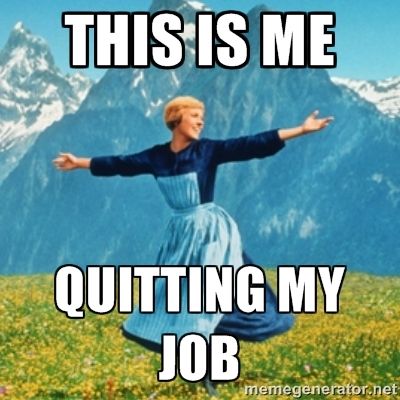|
In honor of Fathers’ Day yesterday I’m sharing a personal story which I’m incredibly proud of, as well as continuously inspired by.
Often I hear people say that by your late 40’s to early 50’s a professional has hit their zenith, their peak, pinnacle, apex, summit - if you will, in their career. Late 40’s? How can that be? At that age you’re only half way to retirement. What’s to become of the next 20 years? I like to think that statistics like ‘hitting your peak in your late 40s’ is nothing other than just a data point. We only make it relevant if we live up to it. Imagine this - at the age of 51, could you completely reinventing yourself professionally? Not because you have to but because you want too. I know someone who did just this and it happens to be my father, Steve Smith. After a tenured and very successful career in consumer products, “condoms to caskets” our family used to say, my father hit a pivotal point in his career. He had just exited a senior leadership position with a large multi-billion dollar company in 2008 and found himself in a predicament. He was looking for his next career step at the age of 51 and at the same time the economy was starting to come crashing down. Needless to say it was a tough time back then. The uncertainty in this country was thicker than pea soup. We didn’t know which way was up or if the recent paycheck we received would be our last. As companies were closing down left and right someone I know took a bold stand and decided to open up a company. Looking back at this point in my life I didn’t appreciate or quite frankly understand that moment in my fathers’ life. How he felt, the challenge of reinventing oneself, the stress of having a family to care for, etc. I just knew he was tough as nails, he’s always been a superhero in my eyes, and would figure it out. Worried, I was not. And figure it out he did. In the middle of the largest economic downturn of our lives my father chose to become an entrepreneur starting a business in executive and small business coaching. He vowed never to return to corporate America to work for another man/woman as this time he was working towards his own dreams under his own rules. At the ripe and spry age of 51 he became an entrepreneur. He hustled; he got out and met with people 3-4 times a day. He shook hands and kissed babies, maybe not so much on the baby side but I’m telling you he worked hard. He outworked even me, someone at the time half his age. His determination and mindset was flawless, at least it was from the outside. What’s just as impressive is that our family, mainly my sister and I, never saw him sweat. He was starting a business from scratch, something he had not done before and was doing it with the poise of a statesman. It didn’t come easy but sure enough my fathers’ business eventually started to grow. He leveraged relationships, made new ones, offered a niche service and delivered impeccable results. He kept his word and delivered the goods. Nothing in life comes easy or quick for that matter and my fathers’ story is no different. Fast forward, both my sister and I are entrepreneurs who have started our own businesses from scratch following in our fathers’ footsteps. I must give my father credit because he showed our family that you can be successful and start a business from scratch, it just takes time, effort and the mindset to see it through. As a result I was encouraged to follow my own dream, just like my father did. I’ve learned a lot from my father and the experience he went through some 10 years ago. I’ve learned that age is just a number. Your mindset is what will carry you through. I’ve also learned the importance of having a support system to help you along the way. That credit goes entirely to my mother who stuck by him and continues to do so today. Lastly, I learned that taking risks in life is important. If we constantly live saying ‘what if’ we run the chance of missing out on a lot of rewarding experiences. If we are going to make a bold step in life the best way to go about that is by giving all of ourselves to it. That’s a choice, one we can exercise freely. Today my father, Steve Smith, runs a successful executive and small business coaching company. I see firsthand what he does for his clients and am continually amazed at what he’s doing to inspire, impact and develop other people not just professionally but also personally. As if that wasn’t enough he’s having fun doing it as he lives the American dream. Honored. Humbled. Appreciated. Dad.
0 Comments
Is the grass always greener on the other side? We quit our jobs with the idea of leaving for green pastures only to find out that the new job we just landed is just as bad if not worse than the last. Yikes! Why does this happen? Simply, we made a decision without fully understanding the ‘why’ behind it. When we’re at a point in our careers where we’re considering leaving our employer typically one or more of the following is happening:
Sound familiar? These are the top five answers people share on why they resigned from their employer. When we’re frustrated at work, especially if it has been going on a while, all too often we’re ready to jump ship without checking first if we have a life preserver on. The first opportunity that comes along meeting our ‘minimum qualifications’ can appear to be a god send. We yell out, “where have you been all my life” as we go through the interview process with our new prospective employer hoping they’ll give us the chance to say “Adios” to our current employer. But wait! How much research and investigation did we do ahead of time to ensure our hopeful new employer is better than the last? Does it meet our needs? Do we even know what our needs are? Here in lies the trap many of us fall into. We convince ourselves that what we have (our job or employer) is crap and anything else that presents itself is therefore exceptionally better than the last. We dive into the new opportunity to get away from the old to find ourselves quickly back into the same situation we were in before. How could this be? (it certainly isn’t our fault because it never is) Sorry to be the bearer of bad news – if you’ve experienced this it is indeed your fault. Now, let’s be fair, maybe no one ever taught you how to go about finding a new job and ensuring it met your needs. If that’s the case consider this first situation ‘my bad’ and moving forward use the following steps to better understand what you need and how to get it with a new job: Step #1: Self Reflection – take time to better understand where your unhappiness comes from. Without knowing this it will be very difficult to improve your situation Step #2: Honesty – are you giving your current job everything you can? If not then you’re putting yourself at risk of running from one issue to another, just at another company Step #3: List Your Expectations – write out a list of 5-10 things you want in a career and employer. Your top #1-3 should be non-negotiable no matter what Step #4: List of New Employers – if you’ve decided it’s time to move on build a list of companies in the area you want to work which meet your needs, at a minimum your non-negotiables. This information can be obtained by speaking with current employees of those companies or reading reviews online. Step #5: Network – this is the biggest misstep of all. Many times we don’t do this which means we aren’t getting a good enough perspective of what is going on within the industry we want to work in. Networking builds our connections and insight for businesses in the area we’re trying to find our next employment. It can also help us land a new gig. Step #6: Confirm Expectations – when you get to the point of interviewing with a new company make sure to ask them how they show up with the list of items you have created that are important to you. Ask every person you meet within the company. If their answers don’t jive with your expectations this isn’t the right company for you. Step #7: Show Up – if you do decide to take a new job with a company that meets your new set of expectations it is imperative that you show up and give them everything you’ve got. 150%. During this time you should also be making mental notes to see if your new employer is in fact upholding their commitments to your expectations. Caution – when you’re new it is a 50/50 split of responsibility where both parties have to come to the table to make the employer/ employee relationship work. Don’t just sit back and expect your new employer to drool all over you and praise you without you showing up in the new job accordingly. Praise, respect and opportunity are earned – never given for free. Unhappy at your job? Looking for a new one? Before you act on it make sure you understand why you’re in your present situation before you get into a new one. Once you know what you want it will be much easier to find the right opportunity rather than the first opportunity. Perhaps you’ve already noticed. Things are changing all around us and it’s happening at lightening speed.
The workplace, as many of us know it, is going through a facelift. A facelift commonly referred to as ‘the gig economy’. It is estimated that 35% of the US workforce in 2017 is now comprised of Gig’s. Gig’s and gig users have something in common… work doesn’t always need to be 9-5, M-F… And many of us have been slow to adapt to this change in our workforce. What is the Gig Economy anyways? It’s an alternative work approach in which temporary positions are common and organizations contract with independent workers for short-term engagements. This doesn’t sound new, so what’s the deal? While using temporary labor may not be a new thing, what is very new is the amount of work that is now being facilitated through Gig’s on short-term engagement. (AKA freelance, independent contractors, contingent workers, temporary workers, etc.) Gig freelancing is taking a much wider foothold in our economy. Today it’s common to find all sorts of work being packaged and facilitated through Gigs whereas before these jobs were considered only as fully employed roles. Management roles, engineering, software, events, cooking, the music industry, professional coaching and even academics are a few examples of work which is now being performed largely by the current day Gig worker. It could also mean you and I having a separate part-time job which we use to bring in extra income on the side. (AKA moonlighting) For example, there are companies and people who do nothing but provide short term support for other companies which have a need for an interim CEO. There are just as many options for companies who want additional support in doing their product design but don’t want to hire a full time employee because it’s work that is intermittent. These are examples of where Gigs come into play. They serve a role for a period of time on behalf of a separate organization. Once they’re done they’re off to finding their next opportunity, often times they may have multiple jobs/ projects going on at the same time. Why are companies and people alike moving in this direction? As our economy and technology continues to evolve we become less and less reliant on doing business face to face. For those of us who grew up in business when you were expected to be in the office for no other reason than ‘face-time’ you should be happy to know that many companies are moving away from this model. Why? We’re learning, slowly but surely, that ‘face-time’ isn’t productive. Employees can be just as productive from home, at a coffee shop or at the local water hole (not that I recommend that) rather than being shackled to their four foot cubicle for nine hours a day. Productivity soars thanks to the usage of Gigs because it offers people the ability to do work and do so on their own accord. We often hear people who are Gig’s say they “like working this way because it’s more creative, allows for a better work/ life balance and gives them the ability to choose the work they want to do.” The benefit to the employer utilizing a Gig approach is they can reduce their overhead on costly brick and mortar facilities (estimated at $12k per employee per year) while having work completed by true experts in the field. Employers are also able to onboard new talent and off-board unneeded skills without the burden of employment taxes and paperwork. Why it is important for me to be aware of ‘The Gig Life’? The reason you should care about what is going on in the Gig Economy is because very soon we will all need to adjust to this new work style in order to remain competitive. Now I’ve got your attention! It’s time we gave some good introspective thought on how we do things at the workplace and whether or not that is the right way to do it. Perhaps your business, your department or your team could benefit from using Gigs to handle freelance work. Maybe in doing so you’ll be able to facilitate a wider volume of business which means more customers, more money and more margaritas on the beach in Acapulco. Maybe your employees are tired of seeing your face on the daily and could use a little R&R while working from home. Either way, it’s time we all jump on the wagon because whether we like it or not the Gig Economy is here to stay and it promises to only grow as time goes on. About the AuthorTravis Smith is the founder and managing director of Square-1 Engineering, a medical device consulting firm, providing end to end engineering and compliance services. He successfully served the life sciences marketplace in SoCal for over 15 years and has been recognized as a ‘40 Under 40’ honoree by the Greater Irvine Chamber of Commerce as a top leader in Orange County, CA. Categories
All
Archives
April 2024
|
Visit Square-1's
|
|




 RSS Feed
RSS Feed


